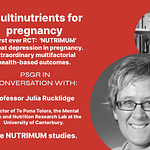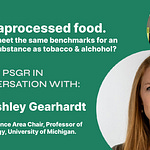In this podcast (also available as a YouTube video with subtitles) Dr Goodwin, a retired oncologist and secondary prevention & wellness consultant discusses:
Cancer as an injury response driven by inflammation & ongoing injury signalling, & an inadequately malnourished host - malnutrition.
Support chemotherapy cycles & maximise recovery time.
Glucose present: more glycated cells become, more primitive they become.
Insulin can exert intergenerational effects.
Nuances around oxidation, oxidative stress & autophagy.
Get your nutritional infrastructure right to support your mitochondrial machinery.
Clean Paleo or Ketogenic - diets that our genes understand. No longer reacting to inflammation.
Nutritional cofactors: Vitamin D, Magnesium, Selenium, B12, Manganese, Zinc.
Why cancer doctors are concerned about Vitamin C
Glioblastoma - diet can play a big role.
The dietary habits of men with prostate cancer.
Evidence pyramids - from cellular level, to individual cases, to cohort data & meta-analyses.
Role of radiation.
How to really address inequity of health - it’s all about nutrition!
Why cancer treatment & prevention need not be separate modalities.
Go to Part 1:
Podcast: Unravelling the biological drivers of cancer after 30 years in oncology.
Youtube video: Unravelling the biological drivers of cancer after 30 years in oncology.
















Share this post